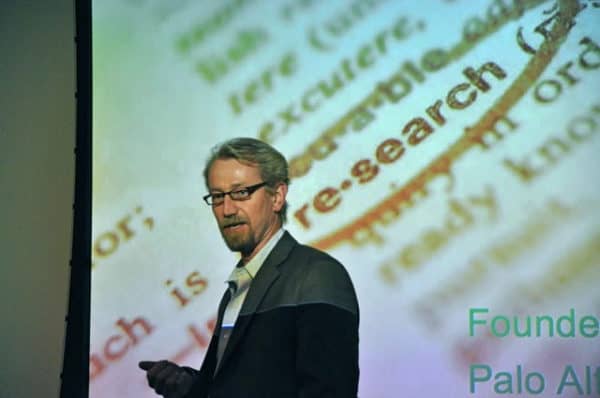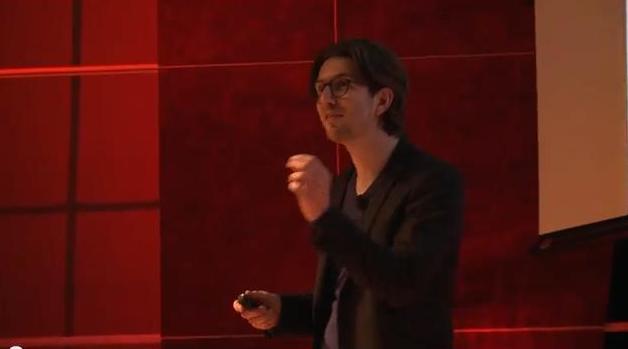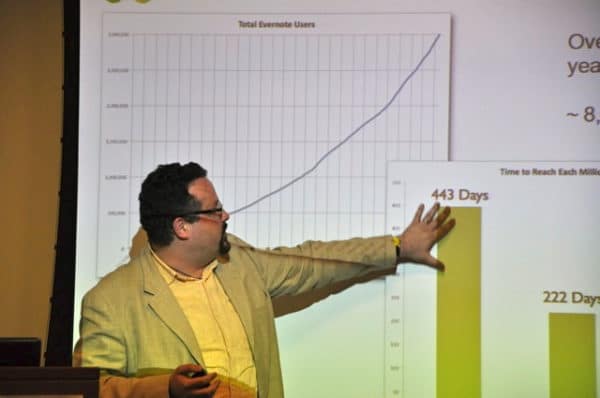Silicon Valley’s Founder Institute Lands in Montreal

The Founder Institute, the Silicon Valley-based “world’s largest idea-stage accelerator”, has expanded to Canada, choosing Montreal as the staging ground for its first foray here.
The Founder Institute claims to have helped its graduates launch 1,017 companies over the last five years, creating more than 10,000 jobs. “Jobs” are a hinge concept in the Founder Institute ethos, as it sensibly offers aspiring entrepreneurs the opportunity to immerse themselves in start-up culture through a series of night courses “before quitting their day jobs.”
At an information session last Wednesday night in the Bronfman building at McGill University’s Desautels School of Management, Louis Philippe Maurice, CEO and co-founder of Busbud, stated flatly, “I don’t think entrepreneurs are born. I think that’s bullshit. And I’ve heard it from the mouth of super successful entrepreneurs. There’s no entrepreneurial DNA. You’re not born to be a lawyer. You’re not born to be an accountant. You’re born a human, and then you become an accountant or a lawyer. Same thing for entrepreneurship.”
Sergio Escobar and Louis Philippe Maurice of Busbud will act as co-directors for the Founder Institute’s Montreal chapter. Busbud, which went from employing their three founders a year ago to a team of five in May, now has 25 employees with plans to double to 50 this summer. They’ve raised $1.5 million in venture capital.
“The Montreal startup ecosystem is positioning itself firmly on the global map and the city has shown one more time that it is an economic and cultural key player in Canada,” says Escobar. “Founder Institute is the logical evolution after the success of the Startup Weekend editions in Montreal. The observed demand for the Founder Institute in Montreal in the past weeks tells us that many people want to launch technology companies in the city. This is a program dedicated to making this happen.”

Start-up culture, after the financial crash of 2008, has played an ad hoc role in fulfilling the otherwise dashed hopes of young job seekers, spreading like kudzu all over the world, growing accelerators and incubators while attracting venture capital wherever it flourished. And even though there’s been some tension between the scrappiness of the start-up scene vis-à-vis the establishment, it was inevitable that a curriculum would eventually develop for aspiring entrepreneurs unwilling to move back into their parents’ basement while developing the next world-changing app.
The Founder Institute represents an early-stage step in the institutionalization of start-up culture.
Maurice, responding to a question at last week’s information session about the utility of accelerators, responded, “This is not an accelerator. Formally, it’s called an accelerator. But it’s definitely different than FounderFuel.” FounderFuel is an early-stage accelerator program run out of Notman House on Sherbrooke Street.
Maurice suggests that applying for the next cohort of FounderFuel would be a logical next step after finishing the Founder Institute program, although he cautions “it’s getting pretty competitive” to get into FounderFuel these days. “You need to have a good amount of traction now to get accepted into the program.”
After his opening remarks, Maurice played a video address from Founder Institute CEO Adeo Ressi, whose stated goal with the curriculum is to “invert the failure rate” for start-ups going through the normal development process, which typically sees 95% of companies failing shortly after their birth, crushed “like a little schooner in a strong storm”. He claims that over 90% of graduate companies from the Founder Institute program are still alive with at least 70% of them doing “quite well”.

Explaining the emphasis on individual founders in the program’s name, he says, “more so than companies, we make founders.”
Applicants to the Founder Institute must pass a predictive analysis test, part of which involves the type of personality assessment using shape selection in a multiple choice format. Tests are processed in and results announced from Silicon Valley. As of his presentation, Maurice said that six had already been admitted to the total 25 available places, with slots filling up quickly and applications accepted until April 13.
The Founder Institute’s Montreal chapter boasts about 20 mentors, including CEOs and VC investors. The format promises to be an informal “fireside chat” session each week, with mentors dropping in to give their presentation and participate in a Q&A.
While the general fizz surrounding start-up culture may attract most applicants, the budding entrepreneurs accepted into the Founder Institute can be expected to familiarize themselves with the routine chores of how to draw up a business plan, as well as taking advice from marketing and legal professionals.
An app developer attending the information session asked Louis Philippe about getting access to business-minded collaborators to complement his technological skills. When Louis Philippe asked if he had a business person as part of his team already, the programmer replied, “I’m looking for one. It’s hard. I have enough problems finding a girlfriend, you know?” which elicited a healthy laugh from the room.
Louis Philippe suggested that the commitment involved in running a fledgling company is more intense than a romance. “If you start a company with a co-founder, you’ll see him more often than your girlfriend, anyway. So choose wisely.”
The lure for participants in the Founder Institute’s program is the promise of tapping in to a large network upon graduation, with alumni getting access to perks, such as discounted corporate rates from Founder Institute partners on services such as site hosting and consultancy services.
Keeping it real and non-academic, though, was Maurice’s rallying cry and final advice for those attending the information session. “Don’t read a book. If I have a person that has five failed start-ups, I actually prefer that to someone who’s successfully read 15 business books about entrepreneurship. The answer is not in the books; it’s in doing it.”
Several pre-program events are being staged in Montreal in the lead-up to the application deadline.
_____________________________________________________________________________________________________________________

Terry Dawes
Writer
